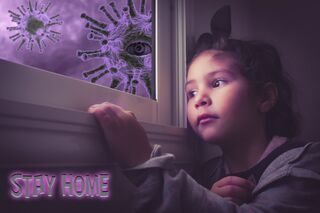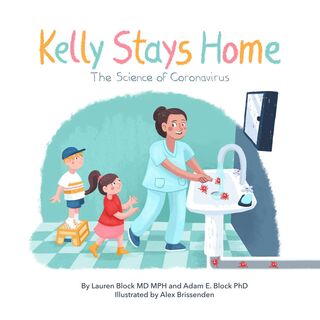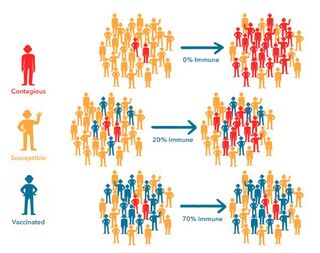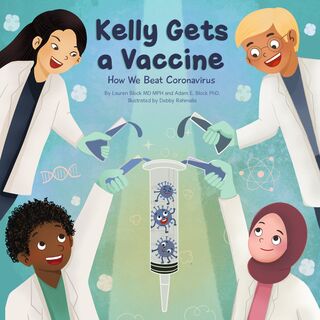
Source: Enriquelopezgarre / Pixabay
Wouldn’t it be great if social distancing was a thing of the past? What if we could hug our friends, see our loved ones and have dinner with them, or allow our kids all the play dates they ask for? No one wants life before the pandemic to resume more than the children whose worlds have shrunk dramatically. Their understanding of why, however, is vague and abstract.
It has been difficult enough for adults to understand the coronavirus and its implications. Imagine being a young child. You might be fed up with the questions: Why do we have to wash our hands so much? When can I play with my friends? Why can’t I see grandma and grandpa?

Source: Alex Brissenden
As a public service, Drs. Lauren Block, primary care physician and medical educator, and Adam Block, public health economist, created Kelly Stays Home: The Science of Coronavirus to fill a void in children’s understanding of COVID-19. It is an informative and useful companion book for teaching young children the principles of inheritance, social distancing, and herd immunity. Two newly released versions, one for children ages 7 to 11 and one for younger ones, competently and sensitively answer questions most of us struggle to answer precisely. In pictures and plain language, the doctors were able to describe why our daily lives have changed so quickly.
The Blocks, parents of three young children, asked friends what their kids wanted to know, and Lauren Block included what her young patients were asking her to figure out what to highlight in the book. They say, “There is a lot of anxiety for adults, but for children it is all about curiosity. We translate this curiosity into scientific facts and actions that children can easily understand. “
“Understanding is an important factor in ensuring children’s buy-in to any changes, such as the importance of washing their hands thoroughly, staying away from friends, or missing a birthday party we are having. ask them to do, ”said Adam Block.
The science of COVID-19
The science behind the coronavirus is likely cloudy in the minds of your children as it can be in yours. What happens when you kiss? Why can’t I go to my friend’s house yet? What happens if mom or dad gets sick? Science has answers.
“Young kids don’t answer numbers,” the Blocks say, “but you want to be able to answer their questions. “
What is a virus? The Blocks explain in the book: “A virus is a tiny microbe. It’s so small that if you stack the virus on top of each other, it would take about a thousand to be the same thickness as a piece of paper or a hair. It has little spikes on the outside that work like glue and stick to just like velcro. Did you know ? I did not do it.

Source: Alex Brissenden
How does the virus spread if everyone stays at home? Answered. Will I get the virus? Answered. What happens if I do this? Answered. The explanation of collective immunity is one of the most crucial pieces of knowledge covered. As this page illustration shows, the number of people (marked in red) who are contagious or at risk of contracting the virus decreases after most people are vaccinated. As much as Joey, Kelly’s younger brother in the story says, “I don’t like injections,” the doctors summary helps prepare kids to accept the vaccination once we have one.
Kelly stays at home makes pandemic facts and rules less onerous for children by explaining why we are doing what we need to do to stay healthy. It teaches children how they can help themselves and help higher-risk family and community members. In short, this free and charming book (and it is, despite its subject matter) gives parents the tools and information to answer their children’s questions as they arise. Once read, your children are very likely to have or ask fewer questions. Looked.

Source: courtesy of the authors
And now that the vaccine is here, the doctors have written Kelly gets vaccinated: how we are fighting the coronavirus“to help parents discuss how vaccines work, what to expect, and how immunization is helping us overcome the pandemic. Ages 5 and up. Free download here.
Copyright @ 2020 by Susan Newman




